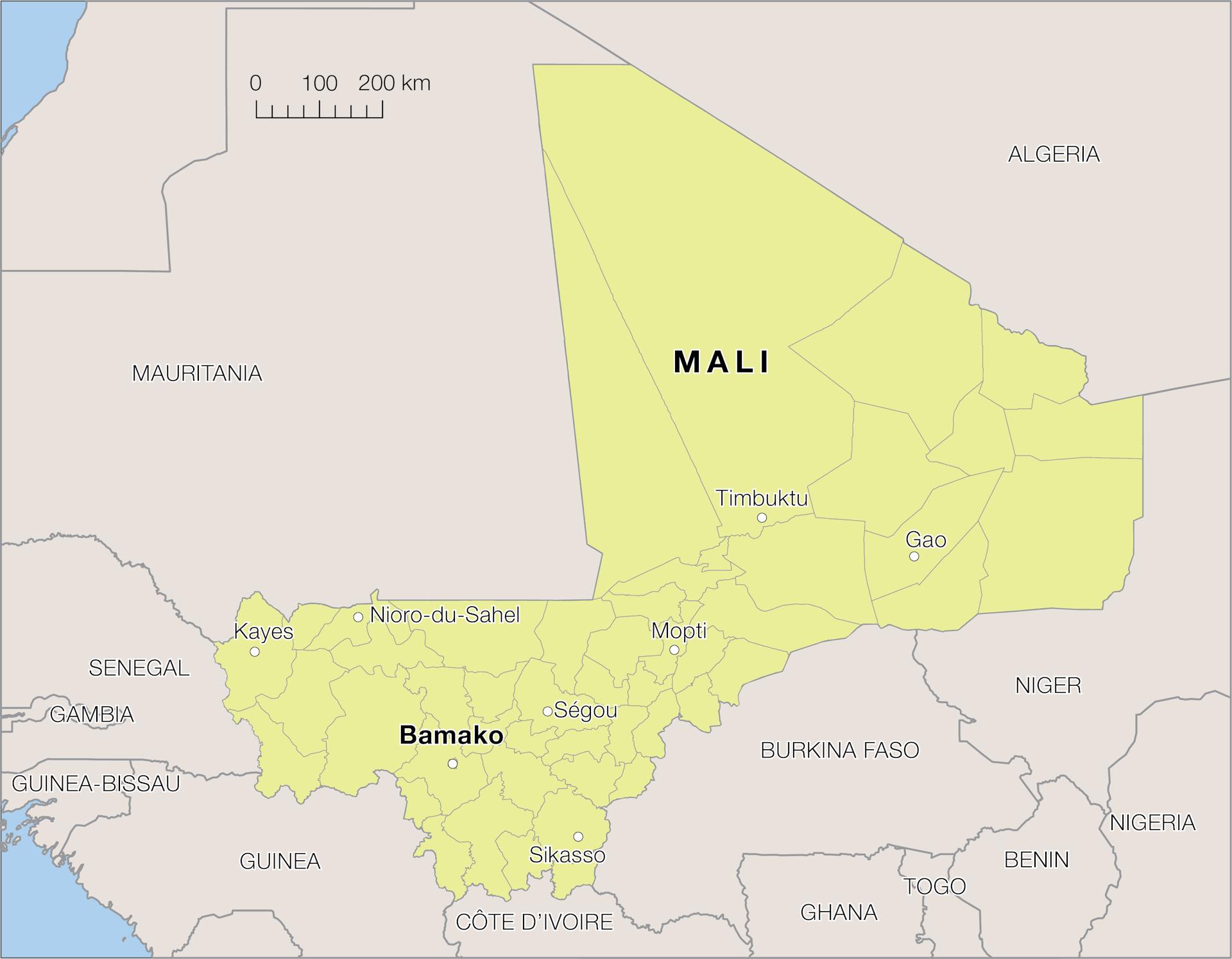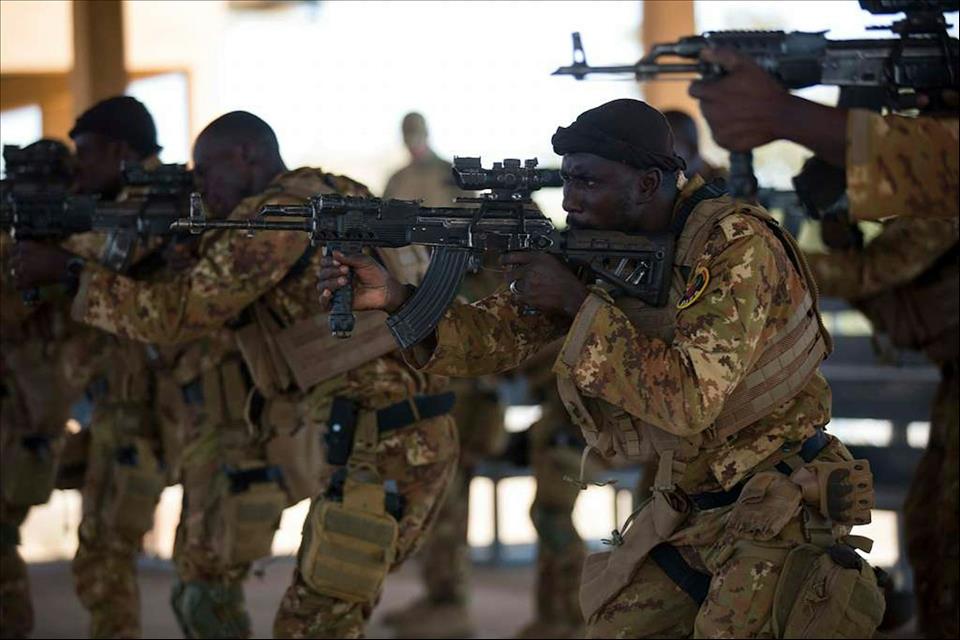
Jihadists Have Blockaded Mali's Capital. What's At Stake
The security situation has deteriorated to such an extent that the United States has asked all its citizens to leave the country immediately. After more than 10 years of civil war, will the jihadist blockade lead to the fall of the capital? The Conversation Africa spoke to researchers from the Sahel Research Group at the University of Florida.
What is the current situation in Bamako?Attacks on transport infrastructure and convoys travelling between urban centres in the Sahel region have increased dramatically since the late 2010s. Our research shows that certain transport routes in Mali are particularly targeted by jihadist groups. One is the route connecting Bamako to Gao, a strategic economic centre with a large military base. These attacks are combined with the blockade of other urban centres like Farabougou, Timbuktu, Kayes and, more recently, Bamako.
Bamako, which is in the south-western part of the country, has experienced jihadist attacks before, notably in 2015 and in 2024. But those were limited terrorist strikes. The current blockade reflects much greater ambition and capacity by the jihadists. In July, coordinated attacks in south-western Mali marked a new stage of Jama'at Nusrat al-Islam wal-Muslimin's southward expansion.
For weeks now, Bamako has been isolated from its external sources of supply, particularly fuel, which must be imported from its coastal neighbours. The government was recently forced to declare the closure of schools and universities due to lack of transport.
Why Bamako?Bamako is by far Mali's most important city in terms of population, economy and politics. Its fall would have catastrophic consequences and determine the country's future trajectory.
With a population of 4.24 million in 2025, according to Africapolis, the Bamako urban agglomeration is more than 10 times greater than the second-largest city, Sikasso. Bamako's importance is not only demographic. All executive functions are concentrated there, including ministries, the national television broadcaster and the international airport.
Bamako also accounts for a large share of the national economy. Our studies suggest that more than 90% of formal businesses are located in the Bamako metropolitan area.
Capturing Bamako would obviate the need to capture larger territories and could decide the fate of the Malian conflict. Control of a capital often serves as the de facto criterion for political recognition. For instance, despite commanding little beyond Kinshasa in his final years, Mobutu Sese Seko remained recognised as Zaire's leader until Laurent-Désiré Kabila took the capital in May 1997.
Capturing the capital city has also been the central step in the resolution of many African civil wars. In 2011, the capture of Abidjan by the forces of Alassane Ouattara, France and the United Nations brought an end to the second Ivorian civil war.
Would the capture of an African capital by jihadists, rather than by conventional rebels, trigger an external intervention by western or African powers? This is unlikely. With the exception of its partners in the Alliance of Sahel States, Mali's government is very isolated diplomatically.
France was forced to depart just a few years ago, and was stung by its deep unpopularity in the region. A new French intervention seems unimaginable. The US is currently more interested in transactions than in new interventions, especially in Africa.
Mali's break with the Economic Community of West African States (Ecowas) would also seem to prevent a coordinated regional response. Even Burkina Faso and Niger, Mali's neighbours and its partners in the Sahel alliance, are bogged down with their own jihadist insurgency.

A map of Mali. Authors What then for Bamako and Mali?
Three broad scenarios seem imaginable:
- a military surge in which the Malian junta manages to break the blockade
a negotiated settlement that would presumably lead to a new form of government political chaos following the fall of Bamako.
The first scenario would require a successful mass mobilisation by the military regime in power. With the help of the Alliance of Sahel States and most likely Russian mercenaries, Malian forces would need to concentrate in the Bamako metropolitan area and also regain control of key routes.
This strategy seems to us the least likely. Not just because of the limitations of the Malian military, but considering that very little fighting has taken place in urban areas in the Malian conflict. Timbuktu, Gao and Kidal have been variously conquered or“liberated” without fighting. Government forces, rebels and jihadists preferred to withdraw when their opponents advanced.
A second, perhaps more likely, scenario is some sort of a negotiated political settlement between Mali's military authorities and jihadist actors. We have suggested for many years that a political agreement is the only way to end a conflict that cannot be won militarily by any of the parties.
Calls for dialogue have recently resurfaced and gained traction among religious, political and business leaders in Mali. However, the issue remains divisive. Prominent advocates for this option include Alioune Nouhoum Diallo, former president of the National Assembly, and Mossadeck Bally, president of the National Employers' Council.
Proponents often cite experiences of settlements reached via dialogue between Islamists and state actors elsewhere in the region, particularly in parts of the Maghreb. Those cases, however, were shaped by very different traditions of state-Islam relations.
A negotiated political settlement in Mali would require substantial revisions to, or even abandonment of, the country's constitutional principle of laïcité (secularism). Successive elites, including the current military, have refused to consider this. And given the jihadists' upper hand, government would have to make concessions that would undercut its legitimacy.
That said, a mediated dialogue might be more likely should Bamako fall into the hands of the jihadists. Governing a city of that scale, and securing cross-border flows of fuel and trade, would almost certainly need negotiated arrangements with neighbouring states which are hostile to the jihadists. In such a scenario, jihadist groups might accept a less hostile governing authority as part of a pragmatic settlement. Potential figures to lead or broker such a process include the exiled Imam Mahmoud Dicko. Even in exile, he wields influence over Malian politics.
A final scenario is one in which the jihadist coalition conquers Bamako and displaces the current regime. While an entry into the city is now imaginable, it would be much less likely that the jihadists could form a cohesive government. The groups that form the coalition have a long and convoluted history of splits, mergers and rivalries. They also have a conflictual relationship with the Islamic State – Sahel Province, the Sahelian branch of the Islamic State, which is active in eastern Mali.
If the jihadist coalition were to gain control of the capital, it is more than likely that the Islamic State would demand to be involved in the exercise of national power. This could fuel rivalries between the two groups. Somalia and Afghanistan have both experienced versions of this scenario.
The highly fluid and confused situation makes predictions about the likelihood of any of these scenarios highly speculative. What does seem clearer is that the crisis at the heart of the Sahel is not likely to be resolved in the near future.

Legal Disclaimer:
MENAFN provides the
information “as is” without warranty of any kind. We do not accept
any responsibility or liability for the accuracy, content, images,
videos, licenses, completeness, legality, or reliability of the information
contained in this article. If you have any complaints or copyright
issues related to this article, kindly contact the provider above.

















Comments
No comment